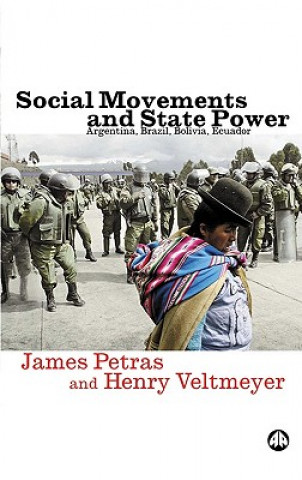
Kézbesítés
Vásárlási tanácsadó





Nem vált be? Semmi gond! Nálunk 30 napon belül visszaküldheti
 Ajándékutalvány
bármilyen értékben
Ajándékutalvány
bármilyen értékben
Ajándékutalvánnyal nem nyúlhat mellé. A megajándékozott az ajándékutalványért bármit választhat kínálatunkból.
Social Movements and State Power
 Angol
Angol
 92 b
92 b
30 nap a termék visszaküldésére
Ezt is ajánljuk


The 2003 electoral victory of Lucio Gutierrez in Ecuador was met with the same sense of optimism that greeted the election of Ignacio 'Lula' da Silva in Brazil, and Hugo Chavez in Venezuela. Gutierrez's victory was viewed as a major advance for the country in its 500 year-long struggle for freedom and democracy. In Bolivia, Evo Morales similarly came within an electoral whisker of achieving state power in 2002, and in 2003 Nestor Kirchner became President of Argentina. Many journalists , academics and politicians speak of a "left-turn" in Latin America, characterizing these regimes as "center -left". They came to power on the promise of delivering a fundamental change of direction that would steer their countries away from neo-liberal economic policies, and towards greater social equity. Their success awakened major hopes on the Left for a new dawn in Latin American politics. This book challenges these assumptions. It critically examines their agreements with the IMF, their social and economic policies, and the economic ties of leading policy makers, as well as the beneficiaries and losers under these regimes. Latin America is unique in that it has experienced two decades of popular resistance to neo-liberal policies: each of the four countries examined here has a rich history of diverse indigenous and working class movements coming together to promote radical political change. The authors examine the political dynamics between the state and its agenda, and the strategy of mass mobilisation taken by the mass movements. They explore the intensifying conflicts between the movements and their former allies in the state.
Információ a könyvről
 Angol
Angol




 Hogyan vásároljunk
Hogyan vásároljunk






















